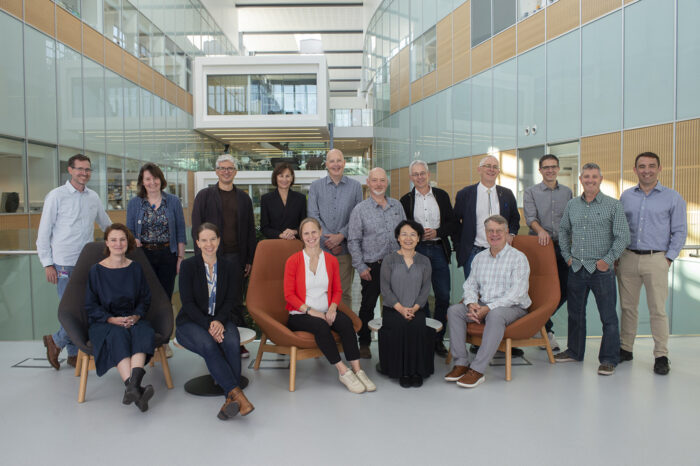
As in previous years, the LMB was once again delighted to host the Next Generation Biophysics Symposium in the Max Perutz Lecture Theatre. Hundreds of attendees joined, both in person and virtually, for a jam-packed schedule of engaging talks exploring the application possibilities of established and emerging biophysical techniques to answer complex biological problems. The successful event was once again organised jointly by the LMB, AstraZeneca, Imperial College London, and the MRC Laboratory of Medical Sciences (LMS).
Throughout the course of the symposium, lecture topics ranged from ‘Cryo-electron microscopy and tomography’ and ‘Single Molecular Applications’ before concluding with two sessions focused on ‘New Methodologies’.
The keynote address was given by Stefan Hell, from the Max Planck Institute for Multidisciplinary Sciences, and the Max Planck Institute for Medical Research, Germany. His talk, ‘MINFLUX nanoscopy and related matters,’ covered how the basic principles of diffraction-unlimited fluorescence microscopy (nanoscopy) has resulted in a new, dynamic super-resolution complex ‘MINFLUX nanoscopy.’ Stefan is recognised globally for his experience in the field of microscopy, and in 2014 shared the Nobel Prize in Chemistry “for the development of super-resolved fluorescence microscopy.”
The 2024 Next Generation Biophysics Symposium was organised by Stephen McLaughlin, Chris Johnson, and Christopher Batters in the LMB’s Biophysics Facility, Maria Flocco and Geoff Holdgate from AstraZeneca UK, and David Rueda from Imperial College London and the LMS.
Commenting on the event, an attendee, said, “I really enjoyed the meeting – there was a great selection of speakers. I especially appreciated hearing about emerging methods in the field and from researchers at different stages of their work.”
Further references
2024 Next Generation Biophysics Symposium YouTube playlist
Stefan Hell’s lab pages
LMB Biophysics Facility
Maria Flocco, AstraZeneca
Geoff Holdgate, AstraZeneca
David Rueda, Imperial College London
David Rueda, MRC Laboratory of Medical Sciences